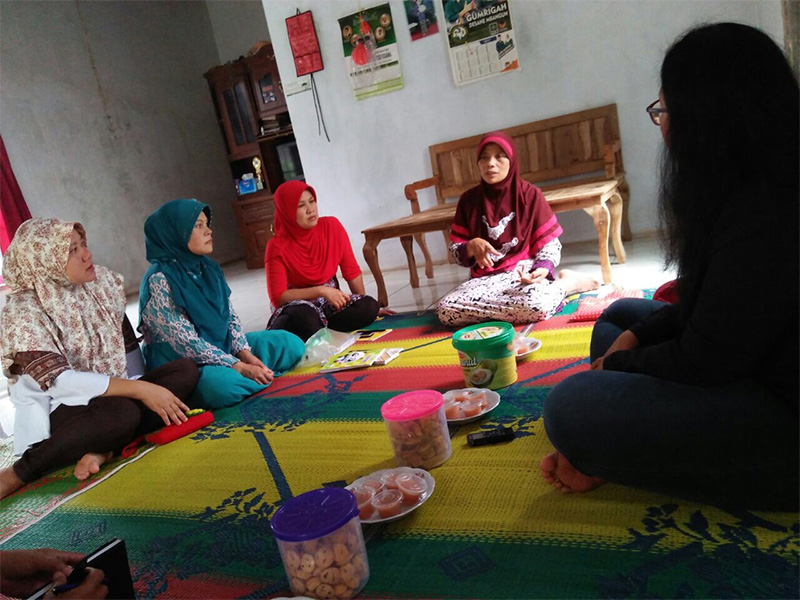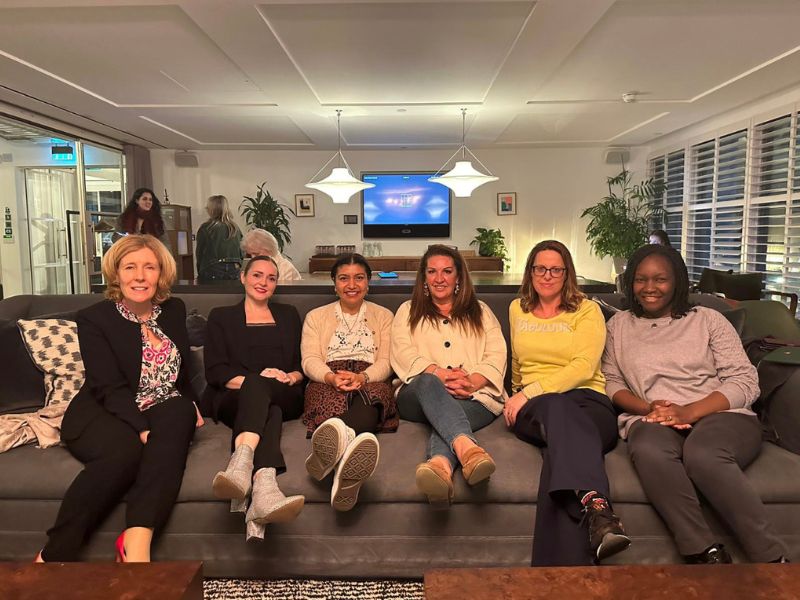
Entrepreneurship continues to be widely celebrated as a way for poor and lower-class women in developing countries to strengthen their financial independence.
Ideally, increased self-reliance leads to these women gaining greater decision-making power in their households and being recognised as productive members of the local community.
Unfortunately, the path to gender equality is more arduous in patriarchal cultures, as entrepreneurs still experience a lack of control over their mobility, education, and social engagement, and sometimes even face increased levels of domestic violence due to the perceived threat to their husbands’ authority.
In the Islamic world in particular, religious doctrines noticeably affect how women justify engaging in business activities. Often, women entrepreneurs attempt to legitimise their occupations through dialogue. For example, middle- and upper-class women are able to form more sophisticated arguments, reinterpreting Islamic scriptures to portray their entrepreneurship as highly compatible with them. However, this approach is not viable for lower-class women, who have a more rudimentary or little (religious) education.
To gain a more grounded understanding of how lower-class women entrepreneurs in developing countries manage this challenge, we visited several rural communities in Central Java, Indonesia. What we found is that these women combine two different approaches to legitimize their entrepreneurial activities.
Paying tribute to the status quo versus emphasizing esteemed values
The first approach is to present their business activities as compliant with conservative gender relations. The women ensure that they have their husband’s permission (or, “ridho”) before undertaking any activity outside of their domestic duties. A woman said, ‘My husband supports my business. If the business is not consuming too much of my time and I could take care of the husband, then why not?’
The second is by redirecting their audience’s attention to non-gendered, non-religious values that are highly esteemed within the local culture. In the case of rural Java, these values are tenacity, financial autonomy, productivity, and collaboration. By citing these values, women entrepreneurs manage to portray their business activities as positive for their husbands, families, and communities.
One woman shows the importance of financial autonomy by saying, ‘Now I do not have to wait for my husband to come home every time I need money for groceries or emergency needs. I had to wait for him to come home before I could buy anything. I didn’t know what to do at times like that.’
The women believe that ‘as much as possible, a woman should not be idle’ and that having a business is allowed ‘if our intention is to help the husband, to have an activity rather than being idle or gossiping’.
They style themselves as hard workers who use their spare time to help their husband, collaborating with them to achieve greater prosperity for the family. They do not argue for greater financial independence from their husbands or suggest that their salaries could allow them to replace their husbands as the main breadwinners. Instead, they reinforce their commitment to gender dynamics in their marriages.
Importantly, we found that women entrepreneurs use both types of argument to justify engaging in business, presenting them as complementary rather than conflicting. A woman said ‘Yes, it’s the husband’s responsibility to provide for the wife’, and then continued ‘but I don’t feel comfortable doing nothing at home and only wait for my husband. Spacing out. What else to do after cooking, doing laundry and mopping the floor?’ She showed that she had her husband’s ridho by adding, ‘then I talked to my husband about starting a business and he agreed to let me try.’
Empowerment or oppression?
Our findings suggest that gender inequalities in these cultures can only slowly erode over time. As researchers, it was a challenge for us to set aside our own ideas about feminism and look at the reality of these women entrepreneurs’ situation. In the Javanese communities we observed, beyond their daily domestic tasks, we were informed it was considered a sin for a woman to take a single step without her husband’s ridho.
It is also important to keep in mind that our context was of moderate Islam and that we talked to women who had successfully become entrepreneurs; in countries or families that adopt stricter religious prescriptions, what we observe might not be possible.
Nevertheless, in a context of moderate Islam, these entrepreneurs were rational and skilful in mixing signals of compliance with putting emphasis on esteemed values. On the one hand, if women do not take care to reaffirm their compliance with the cultural and religious values of the community, they may be ostracized by those around them, limiting their access to vital resources they need to grow their businesses and improve their social status. And, as previously mentioned, domestic violence is an issue which cannot be overlooked.
On the whole, however, we find that women in these communities are very skilled at justifying their involvement in entrepreneurship. They are able to draw on religious and cultural values or deflect attention away from them to legitimise their business activities.
What can policymakers and non-profit organizations do to help?
The gauntlet has been thrown down for international policymakers and organisations to mimic their successes. Those who work to promote women’s entrepreneurship in moderate Islam environments can learn from local women who have successfully become entrepreneurs. In their discourse they can proactively but symbolically pay tribute to conservative gender relations in these communities, deterring direct opposition, so that they can shift the focus of community leaders to non-religious, gender-neutral positive cultural values. These values may be similar or different from those in our specific context, so the first step would be to identify which gender-neutral local values are highly respected and how to connect these with entrepreneurship programs.
This could encourage acceptance of local women becoming entrepreneurs, helping speed up the process of convincing family members and communities that participating in the economy is not a threat to the established order. With this achieved, the path is opened for greater progress in the future.
About the author










